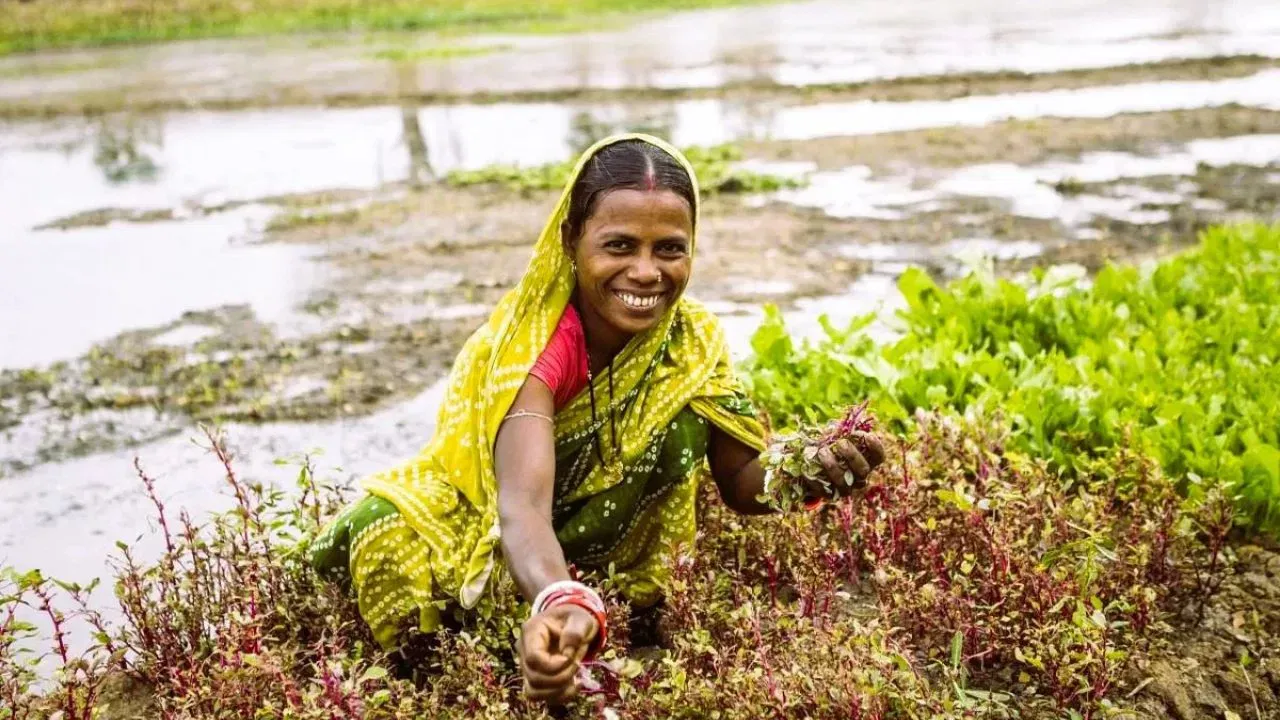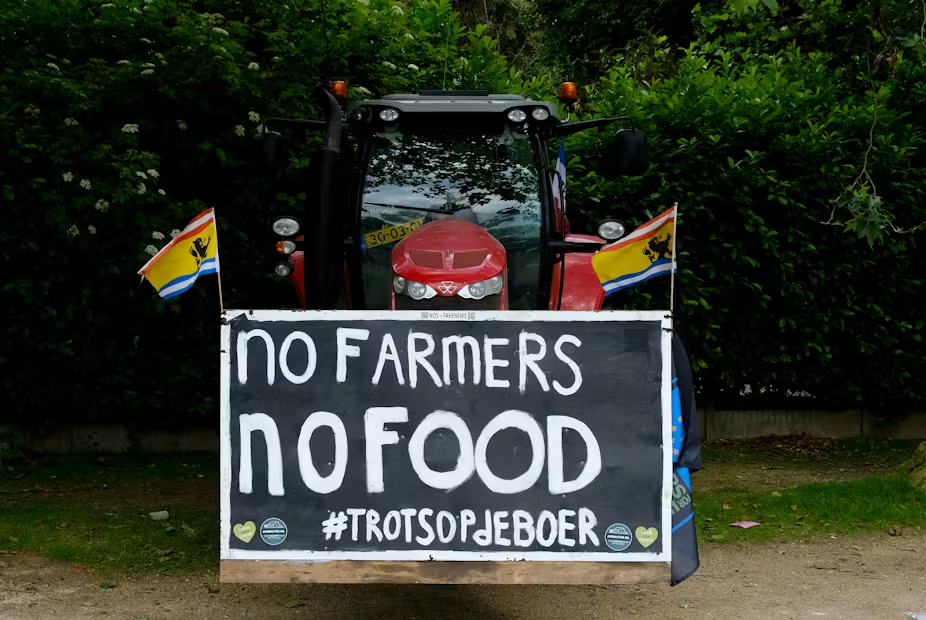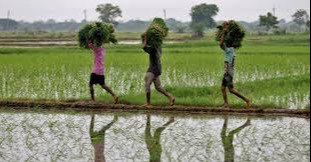Food Politics
Within a country where the religious and social divide is increasingly violent food is just another fragment that is appropriated to oppress
Saachi DSouza
Key words Malnutrition poverty SDGs Farmers Rights Politics Agriculture NFHS Environment Sustainability WFP FAO environmental depletion Youth Employment Food Politics IPR laws

Food has become a pivotal topic in development capturing high level attention in international policy debates and amongst global national and local actors Food implicates matters of production reproduction distribution consumption and the interlinkages between these across global national and local scales Food is also a political matter with questions of how food systems are constituted how they change or do not change and who gains or loses implicating power relations of many kinds between diverse actors An intense politics of food is unfolding across the world albeit in diverse ways
Philosophers like Plato Roman Stoics Epicurus and Seneca Locke Rousseau Voltaire Marx and Nietzsche discussed food politics Their food politics includes the various aspects of food production and consumption
Malthusian concerns with feeding growing populations dominated colonial and postwar development and structured many policy approaches extending from agriculture to environment science and technology infrastructural investment population control and trade Many of these were later consolidated in the creation of the Rome based agencies The Food and Agriculture Organization FAO the World Food Programme WFP and the International Fund for Agricultural Development IFAD Since 2015 the UN Sustainable Development Goals SDGs have come to dominate policy discourse and action With the adoption of Agenda 2030 the international community committed itself to eradicating hunger and poverty and to achieving other important goals including making agriculture sustainable in the production and distribution of food securing healthy lives and decent work for all reducing inequality in both production and consumption of food and making economic growth inclusive It is increasingly recognised that the place of food and nutrition in the SDGs goes far beyond Goal 2 Zero Hunger to encompass synergies and tensions with many other goals
The most central and pervasive social and economic system in the world is the food system that vast web of human interdependencies through which the planets six billion people feed themselves
Bitter Side of Indian Food Politics
In India where diversity is celebrated in theory the politics of food has become a battleground exposing deep seated societal hierarchies and divisions The data is clear nonvegetarianism is the norm in India According to the National Family Health Survey NFHS5 2019 2021 71 per cent of Indian women and 81 percent of men consume meat fish or eggs The India Human Development Survey IHDS 2011 2012 reveals that only about 39 per cent of Indian households identify as vegetarian with significant regional and caste based variations Religious and caste identities further complicate the picture A 2021 Pew Research Center report highlights how these factors deeply influence dietary preferences While Jainism mandates strict vegetarianism Hinduism Indias majority religion encompasses a wide range of dietary practices The symbolic power of vegetarianism in India can be traced back to Brahminical hegemony Scholars like BR Ambedkar and Gail Omvedt have argued that the caste system anchored by Brahminical ideology used dietary restrictions as a tool for social control In this framework vegetarianism became associated with purity spirituality and higher social status while nonvegetarian food was stigmatised as impure and unholy This cultural hierarchy has seeped into public institutions where vegetarian food is often the default option Cultural theorist Arjun Appadurais concept of gastropolitics sheds light on how food becomes a medium of power and identity Sociologist Dipankar Gupta notes that such practices institutionalise prejudices under the guise of accommodation marginalising communities for whom nonvegetarian food is integral to their identity
Food as a tool of exclusion They represent a form of majoritarianism where the preferences of a dominant group are imposed on minorities undermining democratic principles of choice and equality The economic impact of such bans is significant A 2020 report by the Centre for Policy Research estimates that the meat and poultry industry contributes over 15 per cent to Indias GDP and provides livelihoods to millions particularly in rural areas Philosopher Martha Nussbaums concept of the ethics of coexistence offers a way forward She emphasises mutual respect and accommodation in pluralistic societies urging individuals to recognise and honour the diverse values and practices of others Applying this principle to Indias food politics requires moving beyond binary debates and fostering a culture of dialogue and inclusivity Governments should also revisit meat bans to ensure that food related restrictions are secular nondiscriminatory and rooted in public health considerations Additionally policies must protect the livelihoods of marginalised groups involved in the meat and poultry industries The politics of food in India is a microcosm of broader societal tensions reflecting the intersections of caste religion and power By fostering a culture of inclusivity and mutual respect India can move toward a more equitable and harmonious coexistence where food becomes a bridge rather than a barrier between its diverse communities Food should unite not divide Its time Indias food politics reflected this simple truth

Politics in food Prime Minister Narendra Modi also seems to have used not eating for example fasting during his dinner at the White House to help build his image of impressive selfdiscipline Lalu Prasad Yadav showed his mastery of political sloganeering if not foretelling by quipping jab tak rahega samose mein aaloo tab tak rahega Bihar main Lalu Prime Minister Modi outlined the nations commitment to becoming the Global Food Basket and emphasized the goal stating the governments resolve that every dining table in the world should have at least one food product made in India We are working towards making India a global food basket On every dining table of the world we want some or the other product of India to be there Prime Minister Modi said
In Madikheda India MP the children in a remote central Indian village wait for the two small flat pieces of bread and scoop of boiled potato curry and this is regarded as the full meal for them for that day Those children are regarded as the malnourished children across India because they are dependent upon a government run program which serves lunch five days a week
The Hindu nationalist movement built itself on cow protection and its appeal to the many meanings of milk in India For an example of food in negative imaging theres that constant use of pasta to disparage Sonia Gandhis Italian origins The book named as The Philosophy of food says that Trade and globalization of agriculture are increasingly internationalizing the politics of food For industrialized nations trade liberalization is helpful for farmers but for poor countries it creates poverty for farmers because commodities become subsidized It has been said that local farmers cannot produce cheap foods Globalization replaces local diets with Western diet and Western diet gives obesity and heart disease The fast food intake also increases All these types of things provide benefits to the government and political parties Food labels and advertising are affected by food politics Because of food politics lack of information is provided to consumers Capitalism and materialism arose because of the wrong deployment of food politics How to become what you eat is an important point of Nietzsches meditations on digestion He said that culture and the food system are always attached So whatever politics on food is conducted it will affect our culture and life physical also Jacques Rousseau was very concerned with food and diet According to him a wholesome diet leads to a wholesome character He gives more importance to a vegetarian diet He said that we are what we eat like savages eat wild animals that is why they are wild and civilized men eat cultivated grain that is why they become cultivated Karl Marx was a political philosopher who also discussed food politics He wanted to show that a food shortage in the country is not because of natural disasters or of a huge population He said that no society is possible without capitalism and capitalism is applied to food as well
The important role played by following in food politics are consumers farmers agriculture inputs industry activist groups on food safety and quality and retail supermarket chains
For removing food shortages the government needs vibrant agriculture systems increased production and equal distribution of food given to everyone Farmers need to be aware of the resources and technologies India is regarded as Knowledge should be given to farmers for their upliftment Farmers have become the equipment of interest making The political parties have no concerns for the peoples who suffer or die because of shortage of food There is sufficient production of food to feed everyone but wrong distribution of food is managed because of capitalist interest of making money and Government political parties vote banks In Madikheda India MP the children in a remote central Indian village wait for the two small flat pieces of bread and scoop of boiled potato curry and this is regarded as the full meal for them for that day Those children are regarded as the malnourished children across India because they are dependent upon a government run program which serves lunch five days a week
Egg was suggested as a key source of protein and should be given to these malnutritioned children but the Chief Minister of that state rejected this idea by saying that eggs will not be introduced till I am the chief minister He was vegetarian that is why he favors milk and bananas He was imposing the ideas of Hinduism on these people 80 per cent of Indians are nonvegetarians but the government enforces the citizens to become vegetarian
In March 2015 the Maharashtra government banned beef and it affected Dalits and Muslims largely The government also banned the consumption of meat for eight days during Jain community monasticism It shows the food politics seen at social political and economical level
In September 2015 the case of Dadri near Ghaziabad was highlighted in which a man was killed because he was eating cow meat but it was not true He was a Muslim and was eating meat only but some other person gave wrong information by saying that he was eating cow meat The Hindus Brahmins got hurt because they worship cows so how can anyone eat them Those Brahmins killed that man because of the rumor and did not interrogate the actual case No one has a right to kill anyone Politicians more highlighted this issue seeking the attention of the public We know that at the time of Ambedkar shudra were not allowed to eat prasad in temples Shudras were boycotted from eating food They used to eat the dead animals meat and were also denied proper food

Most young people involved directly or indirectly in food systems livelihoods are located in rural areas Therefore addressing youth participation in food systems requires a holistic approach broadly focused on improving rural economies social wellbeing and service delivery Increasing agricultural productivity and promoting and investing in innovations such as mechanization farm advisories and irrigation to make farming more profitable and less laborious could attract youth into agriculture by unlocking diverse employment opportunities
To build such food systems and engage youth for generations to come leaders at all levels should ensure that the direction and targets of policy go further than 2030 to look toward 2050 and beyond
Conclusion In India food politics is linked with food security Food security means to protect secure and maintain the good quality of food Food insecurity provides poverty economic crises poor governance hunger and poor agricultural infrastructure Indias New Food Security Program was issued so that people below poverty line can use their ration cards to purchase subsidized basic foodstuffs But this program has many limitations because it provides limited quantities and also includes basic grains in terms of rice and wheat which is regarded as too expensive for poor class When the elections are around the government reduces the food prices and provides false promises to the farmers So one can see how food politics is related to food security issues A balanced diet should include foods from each of these groups and every nutrient like energy protein or vitamins must be derived from many foods like cereals pulses vegetables fruits oils oil seeds apart from animal protein meat and eggs and dairy But this will not be possible until minimum wages are revised Advocating the right to food or the PDS system should entail quality food and not just feeding the poor only rice
To know more about food politics click here (Dr Vandana Shiva)
